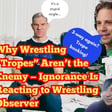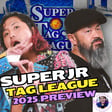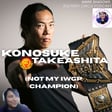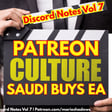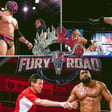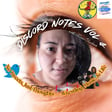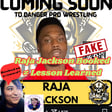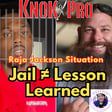
Masha & Akira: Toxic Love, Emotional Abuse, and Wrestling’s Hidden Struggles
Welcome to the Squared Circle Podcast! I am your host Marie Shadows
***
Support:
https://campsite.com/marieshadows
https://patreon.com/marieshadows
https://open.spotify.com/show/5nGoROIAggUjr04rAQkKfR?si=7a6958d00f2940f4
***
This episode isn’t gossip. It’s a case study in how love, anger, and performance collide until nobody knows where the act ends and the damage begins. Using the Masha Slamovich–Akira situation as a lens, we break down the patterns that trap people in toxic cycles—both in relationships and in industries that profit from chaos.
Big Idea 1: The Cycle of Toxic Love
Relationships don’t start toxic—they start with care, attention, and the promise that someone sees you. But when affection escalates into humiliation, apology, and repetition, love itself becomes a weapon.
Affection That Feels Safe at First: “Because I care about you.” What should be comfort becomes a plea: please don’t hurt me again.
Words as Weapons: “Now you can love the memory of me.” Poetry as a tether, keeping a victim tied to pain.
Devotion Turned Against You: “Once again, my love doesn’t come with an asterisk.” Unconditional love can become leverage.
Identity Attacks: “You’re femme as f* and I’m not gay.” Humiliation disguised as honesty cuts deeper than fists.
Big Idea 2: Abuse Isn’t Always Physical
Not all damage leaves a bruise. Emotional abuse can linger for years and is often invisible.
Invisible Scars: Words like “you’ll never be enough” echo long after a busted lip heals.
Silence Feeds the Cycle: Unsounded protests allow the pattern to repeat.
Love as a Trap: Staying out of hope that love will “win” can keep someone trapped.
Abuse Has No Gender: Men can be victims. Women can be abusers. No stereotype protects anyone.
Big Idea 3: Wrestling Culture Makes It Worse
This is bigger than two people. Wrestling rewards chaos and blurs lines between performance and personal boundaries.
Brutal Schedules and Frayed Tempers: Exhaustion makes patience harder, and abuse more likely.
“Work the Gimmick” = Blur the Line: Selling intimacy as a job makes it easy to forget where the act ends.
Public Pain as Content: Online outrage consumes real suffering for clicks.
The Pop Isn’t Worth Your Soul: No angle, booking, or cheer is worth living in fear.
Big Idea 4: Lessons We Have to Carry
This story is a mirror for every relationship and community that confuses passion with pain.
Anger Is Not Love: Hitting, throwing, or humiliating is control, not passion.
Communication Saves Lives: Speak up. Step away. Break the cycle with conversation.
Love Yourself Enough to Leave: Walking away isn’t weakness—it’s survival.
Truth Over Gossip: Talk about hard things without turning pain into entertainment.
Three Smaller but Crucial Ideas
Performance Isn’t Consent: A crowd pop doesn’t erase personal boundaries.
Algorithms Thrive on Suffering: Outrage and pain get clicks; popularity doesn’t equal truth.
Healing Requires Accountability: No one is a cartoon villain. Acknowledging harm is step one.
Final T



